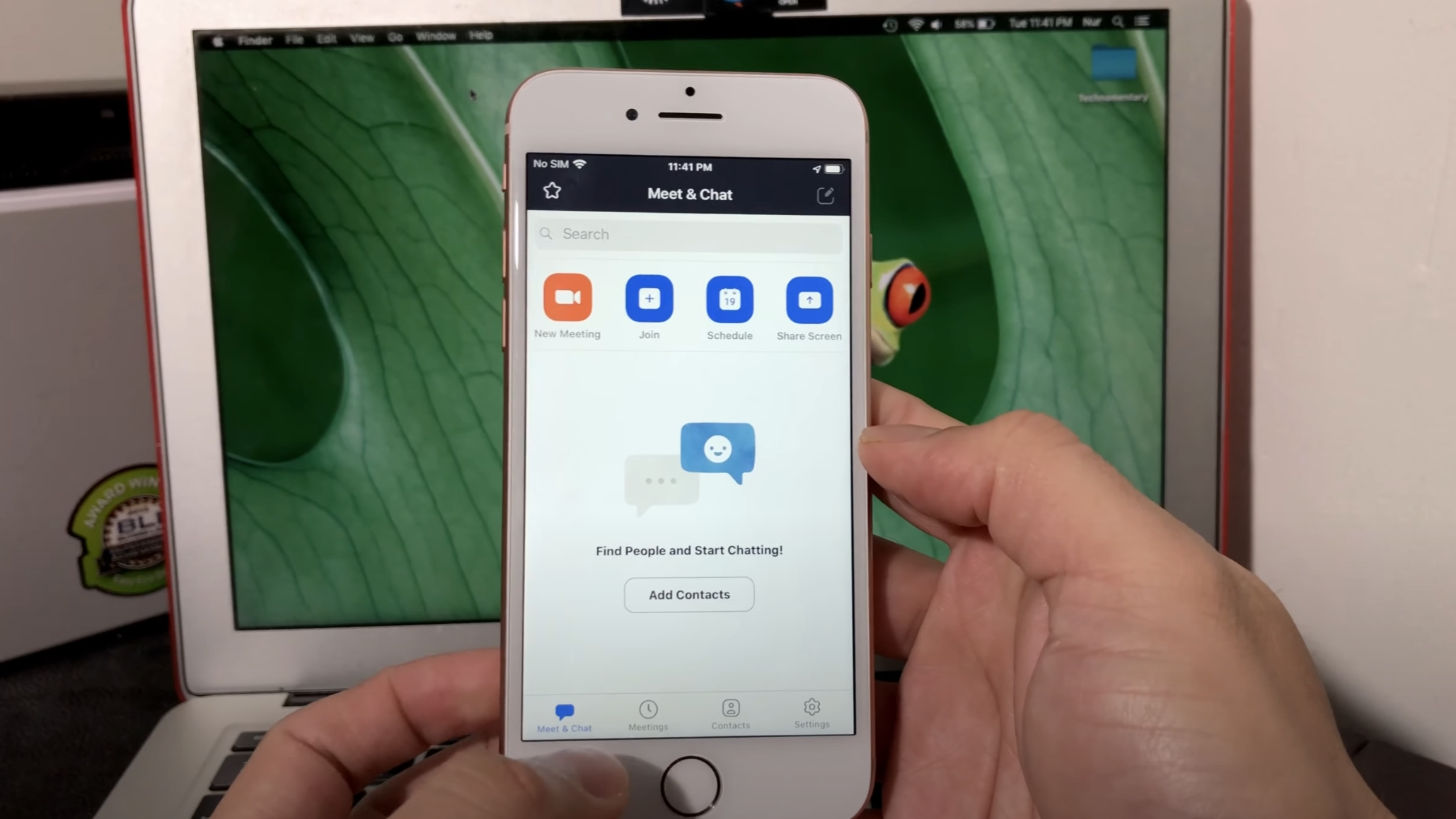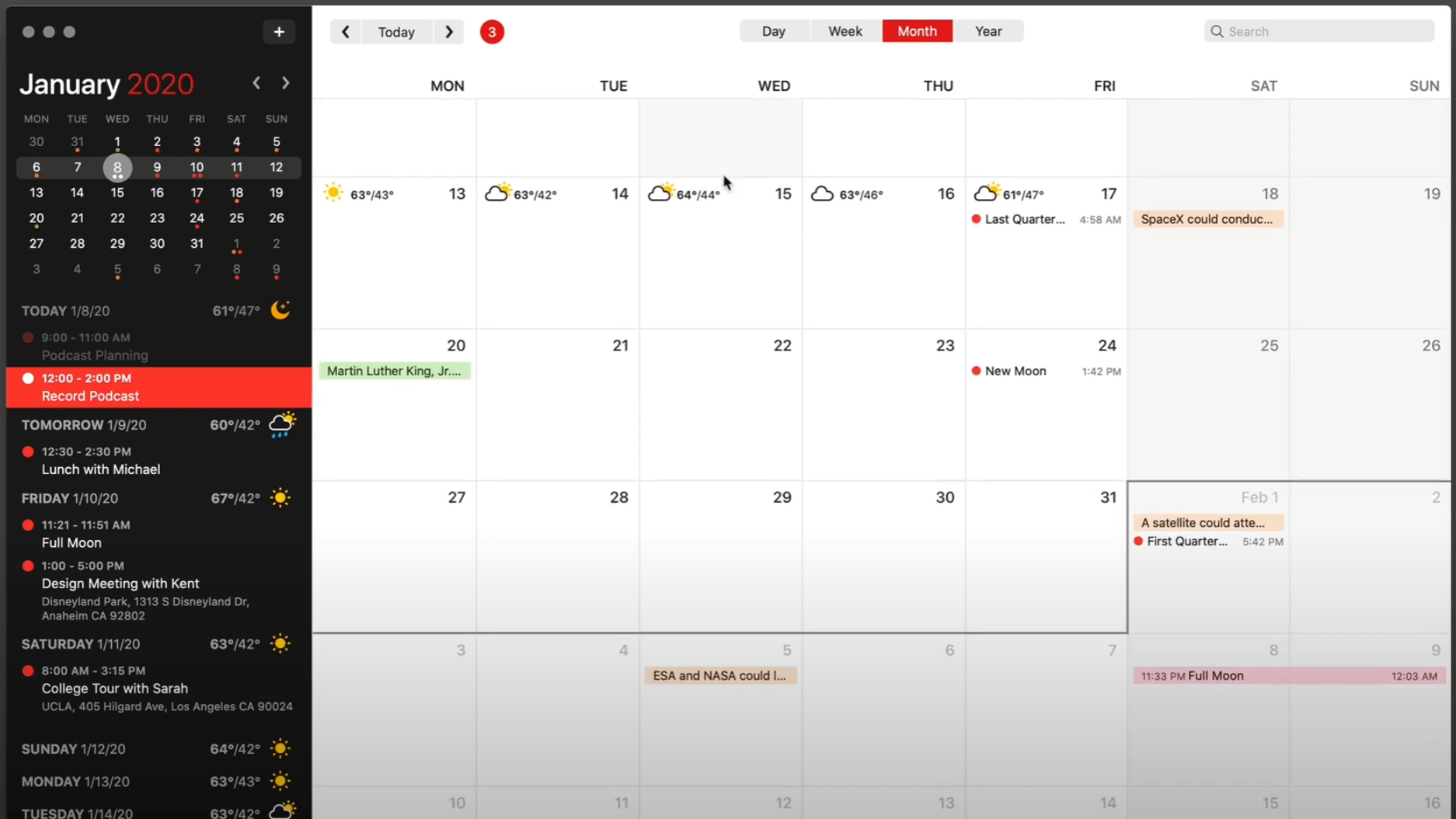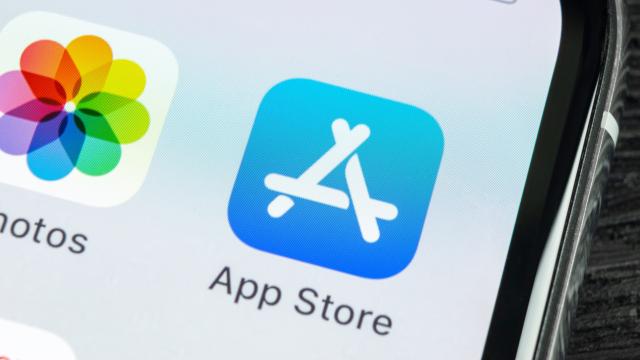A big thank-you to Apple for exhibiting a bit of restraint with its “best apps of 2020″ list; wading through a mere 15 of the best or trendy apps for iPhone and iPad is a lot easier than dealing with Google’s more-comprehensive list of 40 apps for Android. I’m not even sure I have 40 apps on my phone, period.
However, boo to Apple for mostly focusing on subscription-based apps for its big winners. I’m fine with app developers making a dime, but I also think there are strong alternatives to Apple’s picks that won’t cost you a small fortune on an annual or monthly basis.
Ready to save a bit of money? In the next few slides, I’ll profile Apple’s picks and let you know what’s worth installing and what’s worth skipping. Without further ado, here are the best-of-the-best iOS/iPadOS apps of 2020 — and our helpful suggestions.
Mobile apps of the year: Zoom and Wakeout!

Technically, Zoom is Apple’s iPad app of the year, as the company doesn’t have an overall “app of the year.” We all know what Zoom is by now, because it’s a household word for “video call” in the same, frustrating-to-Microsoft way that you “Google” things to find on the web.
On the iPhone, Apple suggests the Wakeout! app as its top app of 2020. I disagree with that choice. It’s a workout app that focuses on super-quick exercises you can do around the house when you’re killing time — waiting for your lunch to heat up, for example, or if you’re stepping away from the computer for a quick second. That’s super-useful, don’t get me wrong, but the app isn’t itself all that innovative. In fact, it locks the exercises behind a subscription model, so you don’t get to do anything unless you cough up $7/mo or $67/year.
If that doesn’t sound very appealing, or you’re not convinced you’ll do much working out even if you’re paying for the app monthly, there are a few worthwhile free alternatives: Keep, Freeletics, Bodyweight Fitness, or even free videos from places like Fitness Blender.
While you could argue that Zoom wins out merely because of its popularity, I offer two counterpoints to that: One, Apple would never pick a Google app (like Meet) for app of the year, so there’s that. Two, Zoom actually does a pretty great job for what you’re getting, even on the limited free version of the service. I’ve always been impressed with its quality — even the crappy limitations we’re dealing with now — whenever I’m sharing my screen to a room full of people and they’ve responded that they much prefer me to pay for Zoom (sigh) than switch over to something like Google Meet, even if I get the latter for free.
So, there you have it. App of the year. But there are plenty of alternatives to Zoom if you don’t want to pay for it.
Mac app of the year: Fantastical

It should come as little surprise that Apple’s Mac app of the year is, of course, the widely known calendar app Fantastical. And it’s a great app. In fact, It’s often praised as the best calendar app you can get by reviewers around the web. There’s only one small catch: It’ll now cost you a small fortune.
Apple has, once again, selected a subscription-only app for its top honours. And Fantastical developer Flexibits made that change at the beginning of this year. The Mac app used to cost $70, straight-up. It was pricey, but justifiable if you really wanted the best calendar app you can get. Now, Fantastical costs $54 per year to access. In other words, you’re basically signing up to pay for a new calendar app each year, rather than paying once and calling it a day.
I don’t begrudge developers trying to make a living, but Fantastical’s move to a subscription model is a pretty stark shift. It would feel better if, say, Flexibits switched to a paymium model — that’s paying a regular price to access most of an app’s features without fuss, with a supplemental subscription for “premium” offerings or other gigantic updates. Or throw a bone to its users and go freemium: basic calendar access for free, with additional bells and whistles for whatever increments people are willing to pay.
That’s not the way things panned out, though. Apple takes less of a cut from subscriptions than in-app purchases, but undoubtedly makes more money from a person sinking monthly money into a service than a smaller one-off purchase.
If all that sounds unpleasant, there are alternatives. The highly-reviewed Calendars 5 costs only $9 (and has a free, limited version). Calendar 366 II costs $20, but many have suggested it’s a strong alternative to Fantastical. There’s also Microsoft 365, if you’d rather pay a bit more per year ($95 total) to access Outlook and the entire suite of Office apps, along with 1TB of OneDrive cloud storage. And don’t forget little ol’ Calendar — macOS’s built-in app that does a great job with the essentials for its low price of free. You can even get a free menu bar calendar that replicates one of Fantastical’s best features.
Apple Watch app of the year: Endel
I confess, I’ve never heard of Endel before today, but its premise seems pretty simple. It’s a “soundscape” app that helps you concentrate (or fall asleep) with various musical or environmental stylings. In an even wilder twist, it can even adapt whatever it’s playing to your heart rate. I haven’t tried that out in practice, but it sounds trippy — if it’s the kind of thing you’d even notice.
However, Endel is also a subscription app — seeing a trend? — which means you’ll be paying up to $70/year for your sleepy songs or a one-time fee of $122 for unlimited access. The latter takes away the sting of the former a bit, but that’s still a lot of money in either scenario for content you can find anywhere for free. Sure, it might not automatically change based on your location or heart rate, but if you’re trying to focus or relax…does that really matter?
Decent iOS alternatives to Endel include Niozio ($4), the free version of Relax Melodies: Sleep Sounds, or White Noise and White Noise Lite. Or, for the price of one year’s service of Endel, you could buy a smart speaker that has all kinds of white noise mechanisms already built in — or one that you can use to play anything you want, at any time, set to a timer.
Again, nothing against developers trying to make a buck, but it feels like there are cheaper options than paying for a $122 app that plays music and sounds — even one that’s well-designed.
Games of the year (non-Apple Arcade)

Apple listed out a whopping four games of the year for 2020, and they should be pretty familiar if you’ve been paying attention to what’s dropped this year. For once, I’m at a loss of which I should recommend as Lifehacker’s top pick (of Apple’s top picks), because I’m having to decide between these four contenders:
Apple split these games up by platform, and all but Disco Elysium can all be played on your iPhone or iPad, at least. I’ve played Disco Elysium, and if you want the weirdest experience possible in an isometric role-playing game, you have to play it. Here’s looking at you, old-school Baldur’s Gate/Planescape: Torment fans, or modern-day Pillars of Eternity/Torment: Tides of Numenera fans. Though Disco Elysium isn’t full of orcs and elves, it’s an experience that almost defies explanation. You can do so very, very much with the options you’re presented as part of the game’s narrative structure, that I don’t want to spoil a single second of what awaits you. Just enjoy this spoiler-free trailer:
If you’re a big fan of Breath of the Wild-like action-adventure games, then Genshin Impact is an easy install. It’s free to play, but it offers an impressive amount of gorgeous gameplay until you start feeling that tug to spend real-world money. In fact, you don’t have to spend anything at all to have a great experience, and I’d encourage you to resist pulling the trigger as long as possible; it’s a slippery slope.
That all said, Genshin Impact is an easy pick for mobile game of the year. It was already a frontrunner, and then Google picked it, so with Apple sealing the deal, I think it’s fair to say this is a must-have for your iPhone or iPad.
Though I went with Gwent when going through Google’s list of best Android apps of 2020, that doesn’t mean that the digital CCG Legends of Runeterra is shoddy. I don’t have much experience with it, but I strongly suggest giving it a whirl if you fall into one of two camps:
- You’re a Hearthstone player that’s sick of Blizzard’s new reward track for the “free” to play game.
- You’ve never played a digital CCG before and you’re curious what the fuss is all about.
The gist of the game is easy to learn: You draw a hand of cards, and have an increasing pool of power you draw from to play each turn. Using a combination of spells, creatures, and other shenanigans, your goal is to reduce your enemy’s life total from 20 to zero. The strategy of the game comes from how the cards interact and the mechanisms you’ll use to attack, prevent damage, and build towards victory — which you can customise yourself by creating your own decks to play with, once you’re good enough.
It’s possible to have a pretty great time in the game without spending a single dollar, so long as you take advantage of all the free-to-play bonuses for expanding the pool of cards you can use to create decks. And that’s pretty much it. If you need more of a helping hand, though, there are plenty of great tutorials you can use to familiarise yourself with Legends of Runeterra’s style:
Everything else
Apple picked Sneaky Sasquatch as its Apple Arcade game of the year, and the best alternatives to Apple Arcade games are: anything else that doesn’t cost money. That all said, the general quality of the games in Apple’s subscription package tend to be a lot higher than those on its conventional app store, so I wouldn’t quite rule this out yet. In fact, if you’re a big mobile gamer, I’d encourage you to check out Apple Arcade using one of the many free trials available. I think it’s the one subscription worth paying for on your iPhone or iPad above all others — save for, like, iCloud.
The ever-awesome Untitled Goose Game (for Mac) is an incredible not-free alternative worth checking out for its sheer silliness. A Short Hike is probably a bit closer to Sneaky Sasquatch for gameplay, but it’s not free (nor available on iOS/iPadOS). And if you just want free iOS games, period, there are way too many to list. Go check out /r/iosgaming and see what the community recommends.
Finally, the five “Helpfulness” apps that Apple selected to embody its “trend of the year” were:
Of these, I think Explain Everything Whiteboard is probably the most practical — though locked behind a subscription. I recommend giving the app a try, and if you think you’ll use it to create useful how-tos for others, consider the Explain EDU app, which strips away the cloud features but only requires a one-time payment of $20.

Leave a Reply
You must be logged in to post a comment.